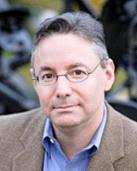The recent passing of the wordsmith, William Safire, has me rethinking my own use of words. I have set a challenge for myself and hope you will do the same. During the next 30-days, I vow to scrub my vocabulary clean of professional babble and choose plain, skillful words instead. Join me in this effort.
Client development success in professional service firms is based on building meaningful relationships. And, relationships are built one conversation at a time. And, each conversation succeeds or fails based on the words we choose to communicate. So, we could say that words are the key to client development in professional service firms. The right words provide a distinct advantage.
Bullcast
On the other hand, the wrong words…well…I just listened to the first ninety seconds of a podcast from one of the world’s leading professional services firms and turned it off in disgust. Here’s a near verbatim transcript of what I heard: “Executives must multi-task which makes it hard to align company assets for maximum leverage but if you utilize services-thinking and the best practices we espouse you can, create collaborative capabilities that build solutions jointly across the company, assign resources effectively and rapidly adapt to dynamic market conditions, execute policies quickly, implement change fast while optimizing the level of investment relative to return.” What? Who taught that professional how to communicate, Mr. Double Talk? If you favor this style, learn from the master: http://doubletalk.com/videoHome.php3
Buzzkill
Here are some of the other buzzword-busting websites that motivate me to avoid sounding like a babbling fool.
• http://www.vidlit.com/cbs/ - A tag-a-long video for The Dictionary of Corporate Bullshit performed by The VidLit Repertory Players.
• http://www.fightthebull.com/index.asp - Brian Fugere is a Principal with Deloitte Consulting and he’s a self-described bull-fighter. He coauthored the book, Why Business People Speak Like Idiots.
• http://www.bullshitbingo.net/cards/buzzword/ - a hoot and a good way to raise your awareness of the lazy language we and our colleagues blather.
Big Talk
Since 1922, The Johnson O’Connor Research Foundation has been studying the correlation between general vocabulary and hierarchical position in companies. The Foundation’s research has consistently demonstrated a nearly perfect correlation (on the order of .95) between vocabulary strength and how high one rises in an organization. “Why do large vocabularies characterize leading executives and outstanding men and women in other fields? The final answer seems to be that words are the instruments by means of which men and women grasp the thoughts of others and with which they do much of their own thinking. They are the "tools of thought," Mr. O'Connor once said.
If professionals need to build relationships with senior corporate executives, our vocabulary strength should mirror those executives. But this is not license to drop every fancy word we know on our prospects and colleagues. Clear thinking means clear speaking. Think plan. Speak plain.
Me vs. You
Fancy talk is self-centered. It seeks to focus the attention on how smart you are at the expense of the listener. My earliest word lessons in business were from a seasoned magazine publisher who was my first boss. He would look at every letter my colleagues and I wrote to clients and would return copies edited viciously with a slashing red pen. One early letter that I wrote unfortunately contained the phrase “I think.” This solicited a crimson ink mark made with such ferocity that it nearly tore through the page. “Never use the phrase, “I think,” he scrawled. “No one cares what you think!” His point was that the word “I” should be replaced almost every time with an expression that focuses on “You,” that is, you my client.
Weasel words
Buzzwords are akin to weasel words with the latter most often attributed to the speech and contractual language of attorneys. A 1900 edition of The Century Magazine first published the phrase “weasel words” referring to them as "words that suck the life out of the words next to them, just as a weasel sucks the egg and leaves the shell." How much substance will a professional be perceived to have if so many of their words are hollow?
Crisp communication also means avoiding hollow words that hedge – making you sound uncertain. Extensive research by professors at Duke University has shown that phrases like “it seems like” and “you know” and “kind of” and “sort of” and “I think” weaken message impact significantly resulting in what academics call “powerless speech.” Powerful speech, by contrast, is laden with enthusiasm, optimism and certainty. Instead of “I think this may be a helpful approach,” try “This is an excellent approach that has worked for many clients and will work for you.”
Right speech
Right speech brings the right results. The same word, delivered with a different attitude can have a vastly different impact on the listener. Intention and intonation make a big difference in the success of our words. The precept of “right speech” says that if we put out the right words, the right way, we will get the right results. To ensure the right results, be mindful that your words are:
• Spoken at the proper time
• Spoken in line with the truth
• Spoken gently yet with genuine enthusiasm
• Spoken beneficially and with a friendly heart
• Spoken plainly and directly and buzzword-free
What do you say to all this? Share some words with me on your experience with words that work and those that don’t.
Tuesday, October 27, 2009
Subscribe to:
Post Comments (Atom)


No comments:
Post a Comment